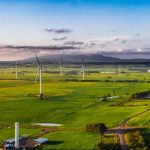Feed aggregator
Climate change: Have countries kept their promises?
Angus Taylor hails latest emissions projections, but it’s bad news for wind and solar
 Taylor says Technology Roadmap will deliver cuts needed to hit 2030 emissions target - but the projections predict doom for large-scale wind and solar investment.
Taylor says Technology Roadmap will deliver cuts needed to hit 2030 emissions target - but the projections predict doom for large-scale wind and solar investment.
The post Angus Taylor hails latest emissions projections, but it’s bad news for wind and solar appeared first on RenewEconomy.
CP Daily: Wednesday December 9, 2020
Australia’s biggest wind farm completes final turbine, but still not generating
 Last turbine completed at Stockyard Hill, but Australia's biggest wind project still not producing a year after original timetable.
Last turbine completed at Stockyard Hill, but Australia's biggest wind project still not producing a year after original timetable.
The post Australia’s biggest wind farm completes final turbine, but still not generating appeared first on RenewEconomy.
Elon Musk's Starship prototype makes a big impact
Even in Australia’s biggest gas state, gas won’t be a transition fuel for the grid
 Market operator dramatically cuts forecast of gas use in electricity generation in Western Australia, the country's biggest consumer of gas.
Market operator dramatically cuts forecast of gas use in electricity generation in Western Australia, the country's biggest consumer of gas.
The post Even in Australia’s biggest gas state, gas won’t be a transition fuel for the grid appeared first on RenewEconomy.
California distributes 3.5 mln new offsets, as analysts predict ample DEBs credit supply
Artemis: Nasa picks astronauts for new Moon missions
EU Market: EUAs again test €30 as options expire, investor interest builds
EU negotiators clinch deal on €17.5 bln Just Transition Fund, excluding gas
The Blue Mountains World Heritage site has been downgraded, but it's not too late to save it
After two decades, the national electricity market is on its way out, and that's alright
Honey bees use animal poo to repel giant hornet attacks
Newly discovered strategy in Asian bees repels killer hornets that can massacre whole hives
Asian honey bees paste pellets of animal poo on to their nests to repel attacks by giant killer hornets, scientists have revealed.
The attacks can involve dozens of the heavily armoured hornets and lead to the “mass slaughter” of thousands of bees, the researchers said, after which the hornets carry off the bee larvae to feed their own offspring. But in a continuing evolutionary arms race, the bees have developed defence mechanisms such as hissing at them or mobbing the hornets to suffocate them.
Continue reading...MPs urge government to create a 'minister for the dark sky'
Group suggests 10 policies to reduce ‘night blight’, including commission to regulate excess lighting
MPs have called for urgent action to reduce light pollution, promote “dark towns” and restore a sense of wonder in the night sky.
Supported by the astronomer royal, a cross-party group urged the government to designate a “minister for the dark sky” and to establish a statutory commission to regulate excess lighting.
Continue reading...Second Nova Scotia carbon auction clears nearly 25% above floor price
PREVIEW: EU 2030 target and budget spat “heavily linked” as Brussels hosts key summit
California governor names ARB chair, three new appointees to environmental agency
Girl's asthma death a 'canary' warning for London pollution, inquest told
Expert says Ella Kissi-Debrah, nine, faced ‘exquisite’ risk and criticises lack of efforts to tackle toxic air
A young girl who suffered a fatal asthma attack thought to have been triggered by dangerous levels of air pollutants was a “canary” signalling the risk to other Londoners, an inquest has heard.
Ella Kissi-Debrah died aged nine in February 2013 having suffered numerous seizures and being taken to hospital almost 30 times in the previous three years.
Continue reading...Australia's record spring heat one-in-500,000 without climate change: analysis
This year’s spring temperatures would be ‘virtually impossible’ without human greenhouse emissions, according to new report
Australia’s hottest spring on record, which saw temperatures more than 2C above average, would have been “virtually impossible” without human-caused climate change, new analysis has found.
A spring as hot as the one Australians just experienced would come along only once every half a million years without the extra greenhouse gases in the atmosphere, climate scientist Dr David Karoly told the Guardian.
Continue reading...


